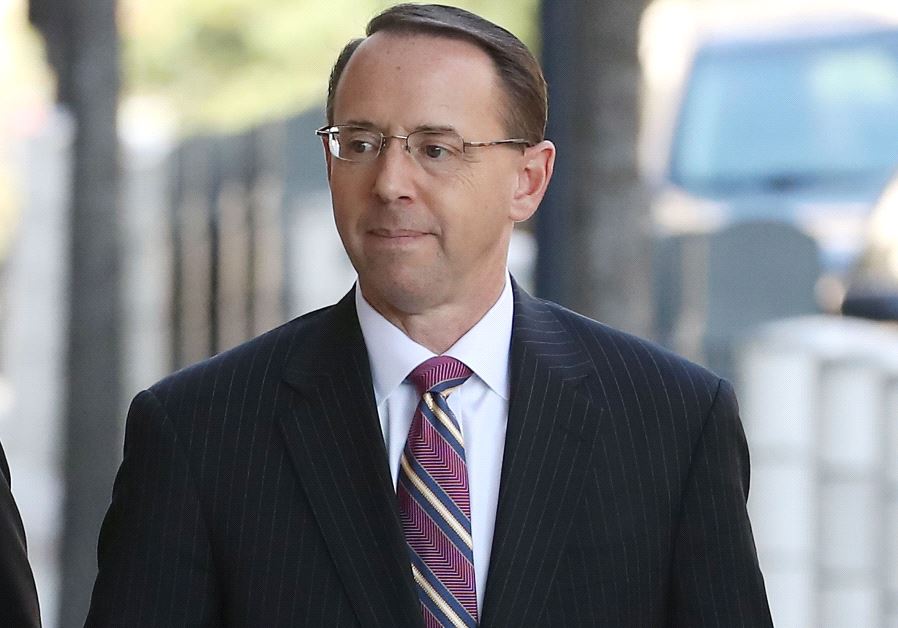Analysis: Ouster of FBI's Comey tests Trump appointee Rosenstein
US Deputy Attorney General Rod Rosenstein argued the case for Comey's sacking in a three-page memo to Attorney General Jeff Sessions on Tuesday.
 (photo credit: MARK WILSON / GETTY IMAGES NORTH AMERICA / AFP)
(photo credit: MARK WILSON / GETTY IMAGES NORTH AMERICA / AFP)